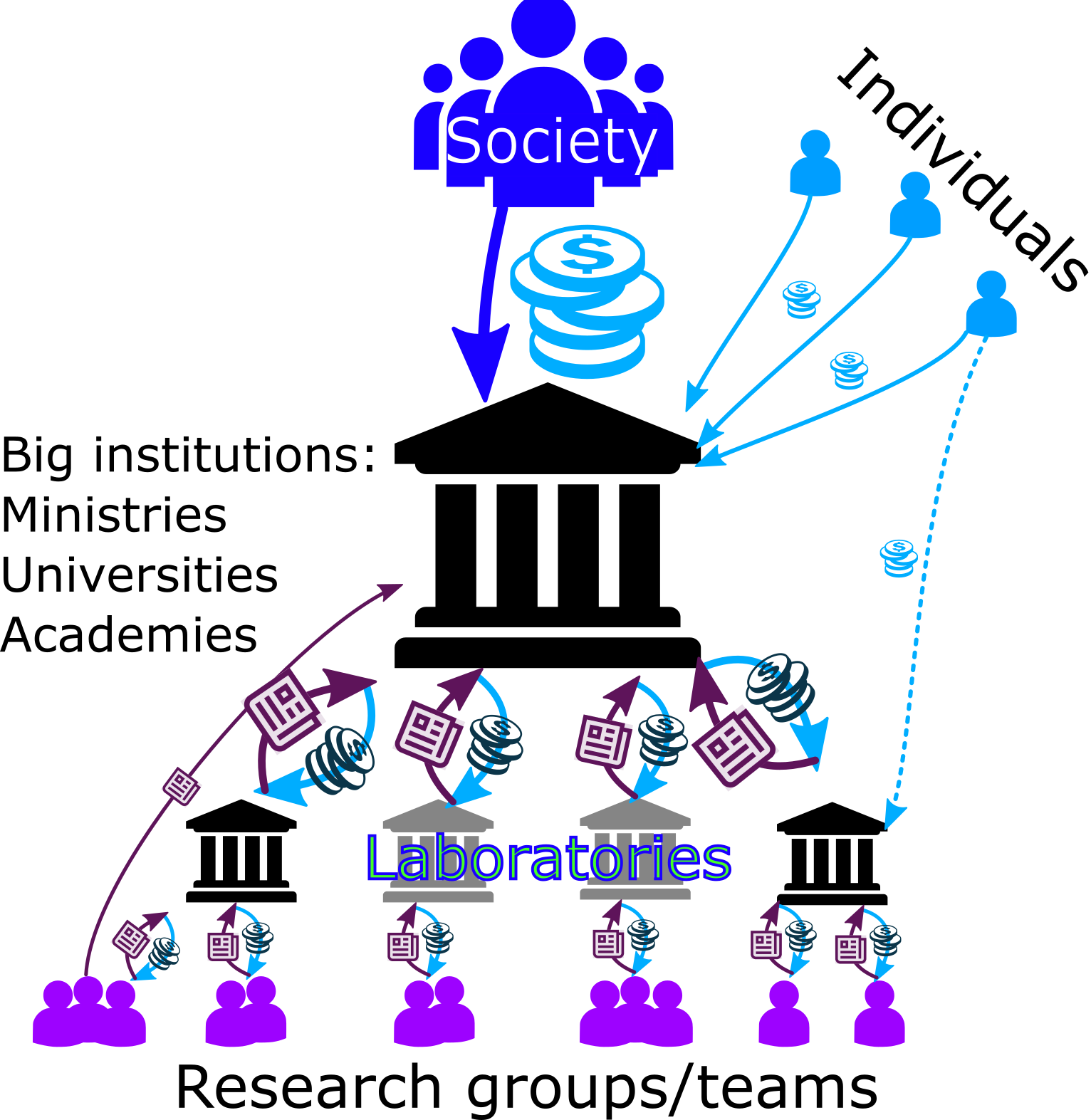Do we need peep-to-peer donation in fundamental research?
At the beginning of last century industrial corporations realized that by financing research they could guarantee their leadership in certain domains of economics. This allowed to radically change and bring sufficiently more money in all kind of research. Two world wars gave an opportunity to the scientific community to raise extra money for war-related research activity. Following decades of Cold War and rapidly growing economics formed the scientific funding system the way we know it today. After periods of recessions ceased big lumps of money science once had...
Nowadays we have 3 main sources of scientific financial support:
- Government funding, in another words Society = people, both national and international research agencies, Universities etc.;
- Corporations;
- Private funding (individuals and corporations).
Modern science is financed through big or super-big fund Agencies. As an example, Large Hadron Collider (LHC/CERN) annual cost of maintenance is ~ 800 MEuro. This is a big sum of money, no matter how rich you are, and only united effort of many countries could be sufficient to accomplish such a big project and thus you need a agencies to manage this project.
If the situation in so-called application orientated research could be called tolerable, since the money is mainly arriving from big corporations, the fundamental research all over the world is experiencing in some cases big, in other modest difficulties...Hereinafter, I will focus only on fundamental research side (since this are is more close to me personally).
Below I tried to summarize a financial scheme of science.

All the money comes from taxpayers rarely individuals and is led to big institutions, which decide where to send the money flow further, smaller institutions do the same, and etc. The amount of money in such organizations in the best case scenario is growing slowly from year to another or stay the same, but the number of researchers tends to grow, so success rate for application for research grants is going down. In some countries, it reached extreme value near zero level ~ 5% in France (ANR fund). Such a high level of competition often leaves good researchers/scientist (see article Reasercher vs Scientist) abandoned and as a result causes to leave science to search o another way of living.
From my point of view, such constructions should be made decentralized, to increase efficiency of money usage, but it is the story for another article.
Today I would like to focus on the peer-to-peer donation, when the money could go directly from individuals to the researchers overpassing big institutions. Herein, I would like to outline, that I do understand the bureaucracy standing after this institutions would fight for their place under the sun, so I see this financial support as an extra source in addition to a classical one.
Why peer-to-peer (researcher view)?
In theory, it should help to:
- Start careers, since money = publications and that leads to a higher success in obtaining financial support from agencies.
This also could allow changing field of research for mature researchers. - Finance research in developing countries.
Why peer-to-peer (donator view):
- I decide where my money goes.
- Much more clear where my money are spent.
- I can fill, that I'm being a part of something big.
- Create new area of research.
How to connect donators with researchers in transparent way?
As I see, we need to develop decentralized platform, uniting researchers, where each researcher is an unique entity generating ideas, doing research, publishing, searching for grants. This platform must guarantee transparent movement of money, ideas, results, each of which must uniquely lead to a certain researcher/s and donators.
It sounds as some blockchain based network, is not it?
Congratulations @saldenisov! You received a personal award!
You can view your badges on your Steem Board and compare to others on the Steem Ranking
Vote for @Steemitboard as a witness to get one more award and increased upvotes!